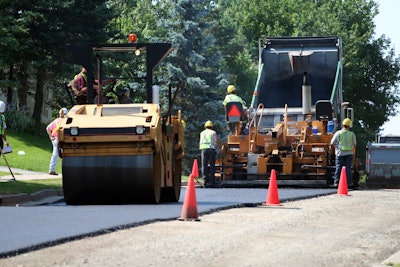
On August 8, the Biden administration issued a final ruling to raise wages for the more than 1 million construction workers on federally funded and assisted projects.
Vice President Kamala Harris said the updates to the Davis-Bacon and Related Acts will put “thousands of extra dollars per year in workers’ pockets.”
But some industry groups say the rule ignored stakeholder feedback and could have detrimental effects.
In a statement, Associated Builders and Contractors (ABC) said the revisions come at the expense of taxpayer investment in infrastructure and “in the midst of challenging economic conditions facing the construction industry, including high materials costs and a skilled-labor shortage of more than half a million in 2023.”
Associated General Contractors (AGC) representatives echoed that sentiment, saying the announcement "makes some improvements but critically misses an opportunity to improve the wage determination process and further burdens over-regulated construction contractors."
The rule, which was proposed in March 2022, is the first update to the prevailing wage regulations in more than 40 years.
It will require payment of locally prevailing wages and fringe benefits on the $200 billion of federally funded or assisted construction projects contained in President Biden’s Bipartisan Infrastructure Law, the CHIPS and Science Act, and the Inflation Reduction Act.
The prevailing wage rate will be equivalent to the wage paid to at least 30% of workers in the locality rather than the previous threshold of 50%. The Biden administration said the new calculation makes it more likely that workers are paid a true prevailing wage.
ABC refuted the claim that workers are not paid fairly, citing a May 2022 study released by the Beacon Hill Institute. The study found that the Davis-Bacon Act costs taxpayers an extra $21 billion a year, increases the cost of construction projects by at least 7.2%, and inflates construction workforce wages by 20.2% compared to local market averages.
Currently, the Department of Labor surveys contractors and other parties to update its prevailing wage rates. The final rule will give the DOL’s Wage and Hour Administrator the express authority to adopt prevailing wages determined by state and local governments, issue wage determinations for labor classifications where insufficient data was received, and update outdated wage rates.
AGC recommended the DOL focus on how to collect more accurate data to determine wages that are "truly prevailing."
“This rulemaking critically missed an opportunity to improve the wage determination process," said Stephen Sandherr, CEO of AGC. “Just as proposed, this final rule appears to make it easier on the Department of Labor (DOL) itself to set prevailing wages with less of the data it already collects, or lack thereof. AGC holds that the DOL’s almost exclusive reliance on voluntary surveys to produce and update wage determinations has created a compensation system for Davis-Bacon covered construction that poorly reflects the construction labor market in many parts of the country.”
Enforcement of the rule will be enhanced with a new anti-retaliation provision in contract clauses. The provision will protect workers who raise concerns from being fired or punished and strengthens DOL’s ability to withhold money from a contractor to pay employees their lost wages.
Commenting on the announcement, ABC Vice President of Regulatory, Labor and State Affairs Ben Brubeck added: “This is yet another Biden administration handout to organized labor on the backs of taxpayers, small businesses and the free market. With this final rule, the DOL has abandoned any possibility of instituting commonsense reforms to Davis-Bacon regulations to ensure accurate and prompt prevailing wage determinations while providing the regulated community with the clarity needed to deliver high-quality projects at an affordable cost to taxpayers. Instead, the rule makes it much more likely that the DOL will adopt union wage scales at the prevailing wage at a greater frequency than in current practice, which already adopts union wage scales at improbable rates considering just 11.7% of the construction industry is unionized.”
North America’s Building Trades Unions President Sean McGarvey lauded the bill, saying: “Today’s DOL final rule strengthens federal prevailing wage regulations and restores the law to its original intent after it has been watered down over the last 40-plus years. This ruling is a win for all construction workers, both union and non-union, for good and fair contractors, and for America's taxpayers."
The new rule is set to take effect in 60 days after being published in the Federal Register.














